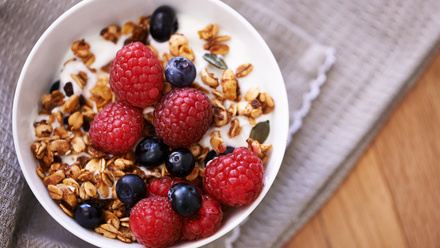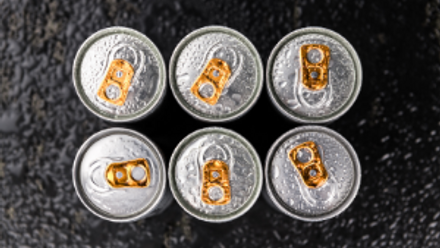What is type 1 diabetes?
Type 1 diabetes is an autoimmune condition where blood glucose levels are too high because the pancreas cannot produce insulin. It may develop at any age. Insulin helps move glucose (the body’s fuel) from the bloodstream into the cells. If you have type 1 diabetes, insulin is replaced either by daily injections or with insulin pump therapy.

Why see a diabetes specialist dietitian?
If you are diagnosed with type 1 diabetes you should be offered support from a diabetes specialist dietitian. This should be alongside other diabetes specialist professionals such as doctors, nurses and psychologists depending on the available services in your area.
A key part of managing type 1 diabetes is being able to identify and count sources of carbohydrates in the foods and drinks you have on a daily basis. Specialist dietitians are trained to help you understand how to do this based on your own food preferences and lifestyle.
You should be offered referral to a structured diabetes education programme where you can learn more about diabetes, carbohydrate counting and insulin management around your lifestyle and activities e.g. DAFNE, SEREN, BERTIE or My Type 1 Diabetes.
Blood glucose targets
The following targets are recommended for people with diabetes. However, targets are individualised. Some people may be given different targets depending on their age and lifestyle.
| On waking | Before meals | 1.5hrs after meals | Before driving | |
|---|---|---|---|---|
| Adults | 5-7 mmol/l | 4-7 mmol/l | 5-9 mmol/l | 5 mmol/l or higher |
| Children | 4-7 mmol/l | 4-7 mmol/l | 5-9 mmol/l | n/a |
The importance of monitoring your glucose levels
If you have type 1 diabetes, you should self-monitor your glucose levels with a finger prick test, flash glucose monitor or continuous glucose monitor. Knowing your numbers will help achieve target ranges. This will reduce complication risks in later life, which could affect your eyes, kidneys, heart, feet and sexual function. The HbA1c test measures average blood glucose levels from the previous 12 weeks.
Whilst you will be supported in working towards HbA1c result 48mmol/mol, all targets are individualised. A target HbA1c should not be achieved by low blood glucose levels (hypoglycaemia) offsetting high blood glucose levels (hyperglycaemia), as this creates greater glucose variability. If you are using flash glucose monitoring or continuous glucose monitoring, then your percentage of time spent in the target glucose range of 3.9 to 10 mmol/l should also be considered, aiming towards 70% time in range and <4% below range.
Reducing blood glucose level variability means you will have more energy, more restful sleep, improved physical performance and concentration, more stable moods and emotions, and healthier skin and gums. You can achieve this through a combination of food choices, insulin adjustment and healthy lifestyle.
What sort of foods can I eat or should I avoid?
Adults and children with type 1 diabetes should eat a healthy diet, the same as somebody without diabetes.
This means including more vegetables, fruits, whole grains, pulses, seafood, nuts and eating less red meat, processed meat, sugar sweetened drinks, sugar sweetened foods and refined grains such as white bread. A dietitian will help support you to make healthy food choices.
How does food affect your blood glucose level?
Food and drinks containing carbohydrate are digested to provide glucose. You need glucose for energy. Protein and fat have a much lower effect on glucose levels, but can influence the speed at which you digest your meal. A dietitian will help you to balance your food intake, physical activity and insulin doses so that your blood glucose is maintained as close as possible to your target ranges with less variability.
Which foods contain carbohydrate?
Examples of food containing carbohydrate include bread, rice, pasta, breakfast cereals, potatoes, biscuits, sweets, chocolate, jams and sugary drinks. Fruit and milk also contain carbohydrate as natural sugar. All carbohydrates will increase your blood glucose level. How much your blood glucose rises will depend on:
- The amount and type of carbohydrate in the food you eat or drink
- Your insulin doses, the type of insulin you have and when you take it
- Your daily activity levels as well as the exercise or sport you do
There is no ‘right’ amount of carbohydrate to eat each day.
Low carbohydrate diets (50-130g day) are not currently recommended for people with type 1 diabetes, as there is no strong evidence to say that they are safe or effective. If you are an adult considering this way of eating, consult with your diabetes specialist dietitian for individualised advice and support. Low carbohydrate diets are not recommended for children with diabetes.
Children and young people’s food choices should provide sufficient energy, including carbohydrate and nutrients for normal growth and development. Your dietitian will be able to guide you on the type and amount of carbohydrate you need and when you need to eat it depending on your age, insulin regimen and lifestyle.
Foods labelled as ‘diabetic’ or ‘suitable for diabetics’ such as sweets, cakes, biscuits, jams and ice creams offer no special benefits and there is no need to have them.
Carbohydrate counting
You should be offered education on carbohydrate counting to keep your blood glucose levels in the target range. You need to be able to balance the amount of insulin with the carbohydrate you eat.
You can either:
- eat similar amounts of carbohydrate every day, or
- learn to adjust your insulin dose (using insulin to carbohydrate ratios and correction factors) to match the amount of carbohydrate you wish to eat
Your diabetes team will help you decide which approach is best for you.
Alcohol
There is no reason why adults with diabetes cannot drink alcohol, unless you have been advised not to. The safe limits for alcohol are two to three units/day (max 14 units/week).
Alcohol can lower your blood glucose and hypoglycaemia may develop up to 16 hours after you have stopped drinking. Therefore, don’t drink on an empty stomach. If drinking in the evening, have a carbohydrate snack before you go to bed. Do not miss breakfast and make sure it contains carbohydrate e.g. cereal or toast.
Physical activity
Being active is an important part of a healthy lifestyle and can help prevent heart disease, maintain your weight and make you feel good. However, it can be challenging to balance your food, insulin and exercise to keep your blood glucose in your target range. Your diabetes team will work with you help you to achieve this balance.
Top tips
- All carbohydrates will provide glucose for energy.
- See a diabetes specialist dietitian to help you carbohydrate count, calculate insulin to carbohydrate ratios and correction factors.
- Accurate carbohydrate counting helps estimate meal insulin doses to keep blood glucose levels in target range.
- Low carbohydrate diets are not recommended for people with type 1 diabetes.
- If drinking alcohol in the evening, have a carbohydrate snack before bed, and eat carbohydrates at breakfast in the morning.
- It is not necessary to buy foods labelled as ‘diabetic’ or ‘suitable for diabetics’.
- Physical activity is important for a healthy lifestyle.
- Your diabetes team will work with you to achieve blood glucose levels within your agreed range, and to reduce the risk of long-term complications associated with type 1 diabetes.
Source(s)
Diabetes UK (2021), Position Statement on Low Carbohydrate Diets https://www.diabetes.org.uk/professionals/position-statements-reports/food-nutrition-lifestyle/low-carb-diets-for-people-with-diabetes [accessed 5 October 2021]
Diabetes UK (2018), evidence-based nutrition guidelines for the prevention and management of diabetes https://www.diabetes.org.uk/professionals/position-statements-reports/food-nutrition-lifestyle/evidence-based-nutrition-guidelines-for-the-prevention-and-management-of-diabetes [accessed 5 October 2021]
Diabetes UK (2016), Position Statement on Diabetic Foods. https://www.diabetes.org.uk/Professionals/Position-statements-reports/Food-nutrition-lifestyle/Diabetic-foods/ [accessed 5 October 2021]
ISPAD Clinical Practice Consensus Guidelines 2018 https://www.ispad.org/page/ISPADGuidelines2018 [accessed 5 October 2021]
NHS Live Well Alcohol Support https://www.nhs.uk/live-well/alcohol-support/calculating-alcohol-units/ [accessed 5 October 2021]
NICE Guideline: Type 1 diabetes in adults: diagnosis and management NICE guideline [NG17] Published: 26 August 2015 Last updated: 21 July 2021 https://www.nice.org.uk/guidance/ng17 [accessed 5 October 2021]
NICE Guideline: Diabetes (type 1 and type 2) in children and young people: diagnosis and management NICE guideline [NG18] Published: 01 August 2015 Last updated: 16 December 2020 https://www.nice.org.uk/guidance/ng18 [accessed 5 October 2021]
Holt R, DeVries J, Hess-Fischl A, Hirsch I, Kirkman M, Klupa T et al. The Management of Type 1 Diabetes in Adults. A Consensus Report by the American Diabetes Association (ADA) and the European Association for the Study of Diabetes (EASD). Diabetes Care. 2021;44(11):2589-2625.







